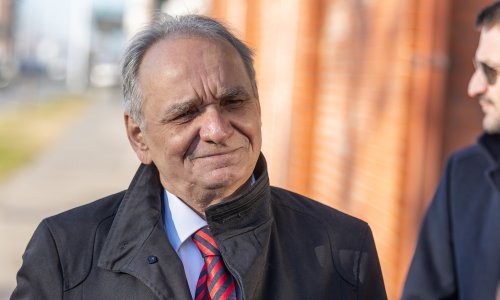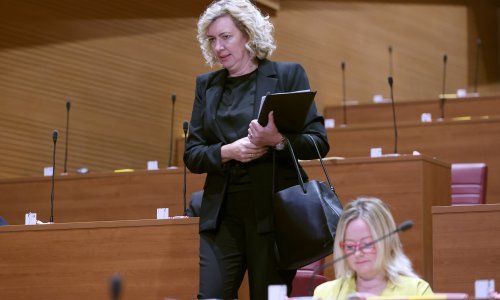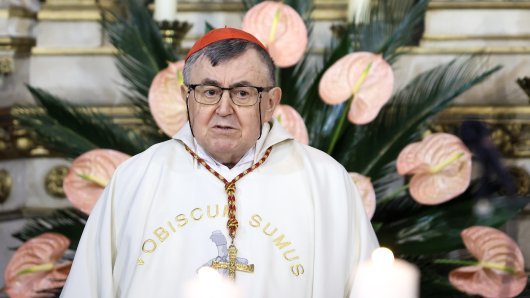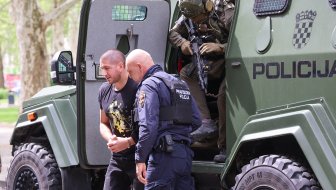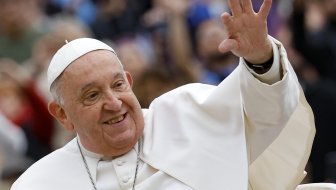President Ivo Josipovic said on Wednesday he expected the new government to turn around in the first 100 days of its term the negative economic trends and create conditions for raising employment and coming out of the crisis.
"Of course, a miracle isn't possible in a 100 days and everything can't be done, but it's important that citizens recognise the right direction and that new optimism is generated," Josipovic said in an interview with Media Servis.
Asked how much citizens' optimism could help the new government, he said it was good that citizens trusted the new government, as this boosted its confidence and citizens' willingness to accept reforms and participate in positive tendencies in the best way possible.
The president said reforms need not only bring something uncomfortable but good as well, such as more jobs, new prospects and helping Croatia get a good position in the continuation of the European process.
Regarding the big budgetary cuts announced by the government and the central bank governor, Josipovic said the budget should be reduced but that the state's normal functioning should be ensured.
Asked if the government would manage to avoid a downgrading of Croatia's credit rating, Josipovic said he hoped so.
Asked if VAT should be raised, he said the likely increase should be accompanied by a certain compensation for the poorest, either through a differentiated VAT rate or other social measures.
Asked if one should fear a rise in unemployment following the announcement of a wave of bankruptcies, the president said "the philosophy" of bankruptcy should be changed and bankruptcy viewed as a new chance to restructure operations.
"That's only possible if one reacts early enough and if one embarks on the restructuring early. If one allows the debt to rise to tens or hundreds of millions of kuna, then it's a way of no return."
Asked how state administration could be downsized, Josipovic said it would be wrong to let people go by political criteria. "We know what the political part of the state administration is, and it is subject to replacement. But the people leaving the state administration must have a guarantee of social security."
Asked about announcements that the war veterans register would be made public, Josipovic said nobody believed that people who had acquired war veteran status based on false documents and statements should retain the privileges stemming from it.
"That's a question of equity and resource management," he said, adding that he believed the number of such people was not high and that it was good that new Veterans Minister Predrag Matic had put the publication of the register on his agenda.
The president said the register should be made public in a way that did not disclose data that might endanger someone and that this must not be a witch hunt, voicing confidence that it would be done with dignity.
Asked about his request of the Constitutional Court to assess Croatia's law invalidating Serbian war crimes indictments, Josipovic reiterated the law was unacceptable and that his request was a legal and moral obligation. He said he had not filed it before because it was a contentious issue between parties running in the recent parliamentary election and that he wanted to avoid the impression that he was rooting for someone.
Asked if Amnesty International had contacted him by letter, as it had the government, requesting an investigation into the roles of Vladimir Seks and Davor Domazet Loso in the 1991-95 war, the president said AI "can insist on whatever it wants, but it is writing to the wrong addresses."
"It would be terrible if the government investigated. That's not the government's business and the only thing it can and must do is create an environment in which politics doesn't influence either the police or the judiciary," Josipovic said, adding that this was a matter for the judiciary and the state prosecutor.
Asked if former Prime Minister Ivo Sanader, who is on trial for corruption and war profiteering, deserved an MP's pension already or if a decision on the matter should be postponed until after the completion of the court proceedings against him, the president said that even someone who had killed a man was entitled to a pension if he had earned it, but that it was another question if he would have to pay it back.
Asked to comment on the suspension of assistant police director-general Davor Blazevic for a serious breach of duty after photos published in the press, according to the interior ministry, showed that he had contacted Sanader, thus damaging the reputation and interests of the police service, Josipovic said this was a matter for investigators.
Asked what kind of Croatian Democratic Union (HDZ) Croatia needed today, Josipovic said he wanted to separate the presidential policy from the partisan policy, but that regardless of how the HDZ chose to organise itself or whom to elect as its president, it should remain a strong centre-right party, as this suited the political positions of a considerable part of Croatian citizens.





